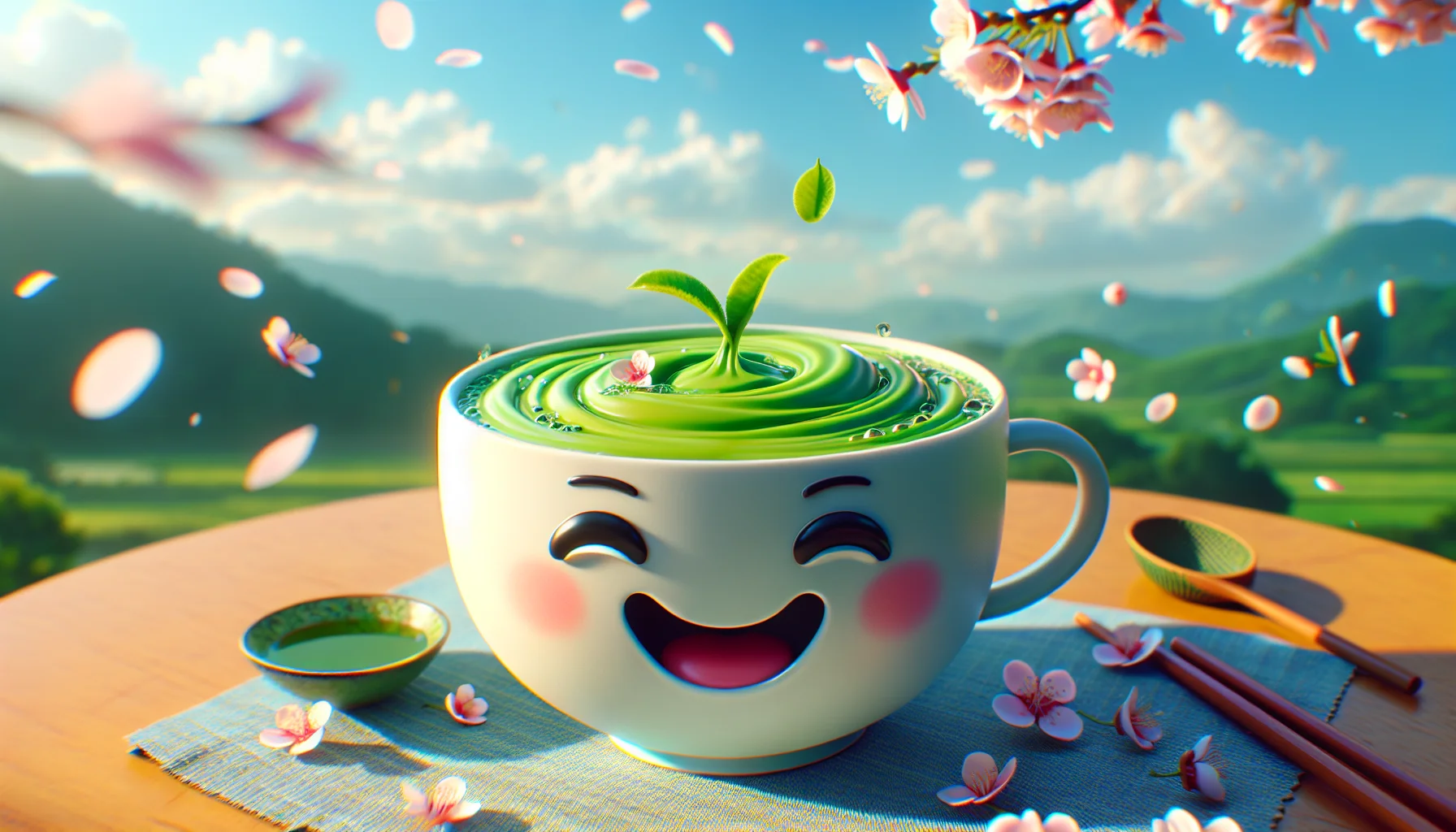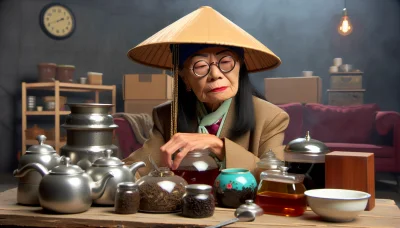Green tea in japanese Quiz
Test Your Knowledge
Question of
The Essence of Green Tea in Japanese Culture
Green tea, known as "matcha" in Japan, holds a venerable position in Japanese culture, embodying not just a beverage but a profound cultural heritage. Its significance stretches beyond its health benefits, intertwining with the spiritual, social, and artistic aspects of Japanese life. The traditional Japanese tea ceremony, known as "Chanoyu" or "Sado," epitomizes this cultural depth. This ceremonial practice, which centers around the preparation, serving, and consumption of matcha, is a meditative ritual that emphasizes respect, purity, harmony, and tranquility. It reflects the Zen Buddhist principles and showcases the meticulous artistry and philosophy of Japanese culture. Through the act of drinking green tea, people connect with each other and with nature, celebrating the simplicity and beauty of the moment. Thus, green tea is not merely a drink in Japan; it's a symbolic gesture of peace, mindfulness, and hospitality that resonates deeply within the Japanese way of life.
Types of Japanese Green Tea
- Sencha
- Matcha
- Gyokuro
- Genmaicha
- Hojicha
- Kukicha
- Bancha
- Shincha
- Tencha
- Mugicha (Barley Tea)
The Health Benefits of Japanese Green Tea
Japanese green tea is renowned not only for its exquisite flavor but also for its wide range of health benefits. It is rich in antioxidants, such as catechins, which help in reducing cell damage and preventing chronic diseases. Drinking Japanese green tea has been linked to improved brain function, thanks to its caffeine content and amino acid L-theanine, which can enhance focus and calmness. Moreover, it supports heart health by lowering bad cholesterol levels and increasing the antioxidant capacity of the blood. Regular consumption of Japanese green tea may also aid in weight loss by boosting metabolism and enhancing fat burning. Furthermore, its antibacterial properties can improve oral health, reducing the risk of infections. With its combination of health-promoting properties, Japanese green tea is a valuable addition to a healthy lifestyle.
How to Brew Japanese Green Tea
Traditional methods of brewing Japanese green tea emphasize precision and care, reflecting the cultural significance of tea in Japan. To begin, it's crucial to use fresh, soft water heated to the right temperature, which varies depending on the type of green tea. For instance, sencha is best brewed at around 70-80°C, while gyokuro, a more delicate variety, requires a cooler temperature, about 50-60°C. Measure about 2 grams of tea leaves for every 100ml of water. Pre-warm the teapot and cups by pouring some hot water into them before discarding it. This helps maintain the temperature during brewing. Add the tea leaves to the pot, pour in the water, and let it steep. Steeping time is short, typically between 30 seconds to one minute for the first infusion, to extract the rich flavors without bitterness. Pour the tea into each cup evenly, ensuring the strength is consistent. Japanese green tea can often be re-steeped multiple times, with each infusion revealing new flavors and aromas.
Ceremonial Importance of Green Tea in Japan
Green tea holds a pivotal role in Japanese culture, particularly within the context of traditional tea ceremonies, known as "Chanoyu" or "Sado". These ceremonies are not merely about drinking tea, but are a spiritual and philosophical experience, deeply rooted in Zen Buddhism. The preparation and consumption of green tea, specifically Matcha, in these ceremonies, is a highly ritualized process that symbolizes purity, tranquility, and harmony. Each movement and step in the ceremony is meaningful, from the cleansing of utensils to the methodical way the tea is whisked and served. The tea itself, with its bitter yet subtly sweet flavor, is appreciated not just for its taste but for its ability to foster a moment of mindfulness and connection among participants. Through this ceremonial practice, green tea transcends its role as a beverage to become a vital medium for artistic expression and spiritual contemplation in Japan.
Where to Find Authentic Japanese Green Tea
In Japan
- Tsujiri - A historic tea shop known for its high-quality matcha.
- Ippodo Tea Co. - A centuries-old tea company offering a wide range of green teas.
- Marukyu-Koyamaen - Renowned for its ceremonial-grade matcha and other green teas.
- Uji Town - Visit the tea shops in this town known for producing the best matcha in Japan.
Online
- Yunomi - A comprehensive marketplace for small-scale tea farms and producers in Japan.
- O-Cha - Offers a wide selection of green teas, including rare finds and organic options.
- Sazen Tea - A user-friendly site with a curated selection of Japanese teas and teaware.
- Matcha Source - Specializes in high-quality matcha for both drinking and culinary uses.
Pairing Food with Japanese Green Tea
Japanese green tea is not just a beverage; it's a versatile companion to a wide array of Japanese foods. From the fresh, vegetal notes of a Sencha to the deep, umami-rich flavors of a Gyokuro, each type of Japanese green tea can enhance the dining experience in unique ways. Here are some ideal pairings that bring out the best in both the tea and the food.
| Tea Type | Food Pairing |
|---|---|
| Sencha | Sushi and Sashimi |
| Matcha | Traditional Japanese sweets (Wagashi) |
| Gyokuro | Steamed fish dishes |
| Genmaicha | Tempura |
| Hojicha | Grilled meats |












